This is the show where Hollywood turns up.
12 of the Most Unforgettable (and Controversial) Moments of Celeb Activism in Oscars History


When we tune into awards shows, we expect glitz, glamour, and surprises. But for the Oscars, Hollywood’s biggest and best don’t just turn out, they also turn up to promote their political views. The Academy Awards have a storied history of stars using the ceremony as a sounding board for hot button issues that are important to them — and, often, to others as well. Here are 12 of the most unforgettable political statements in Oscars history:
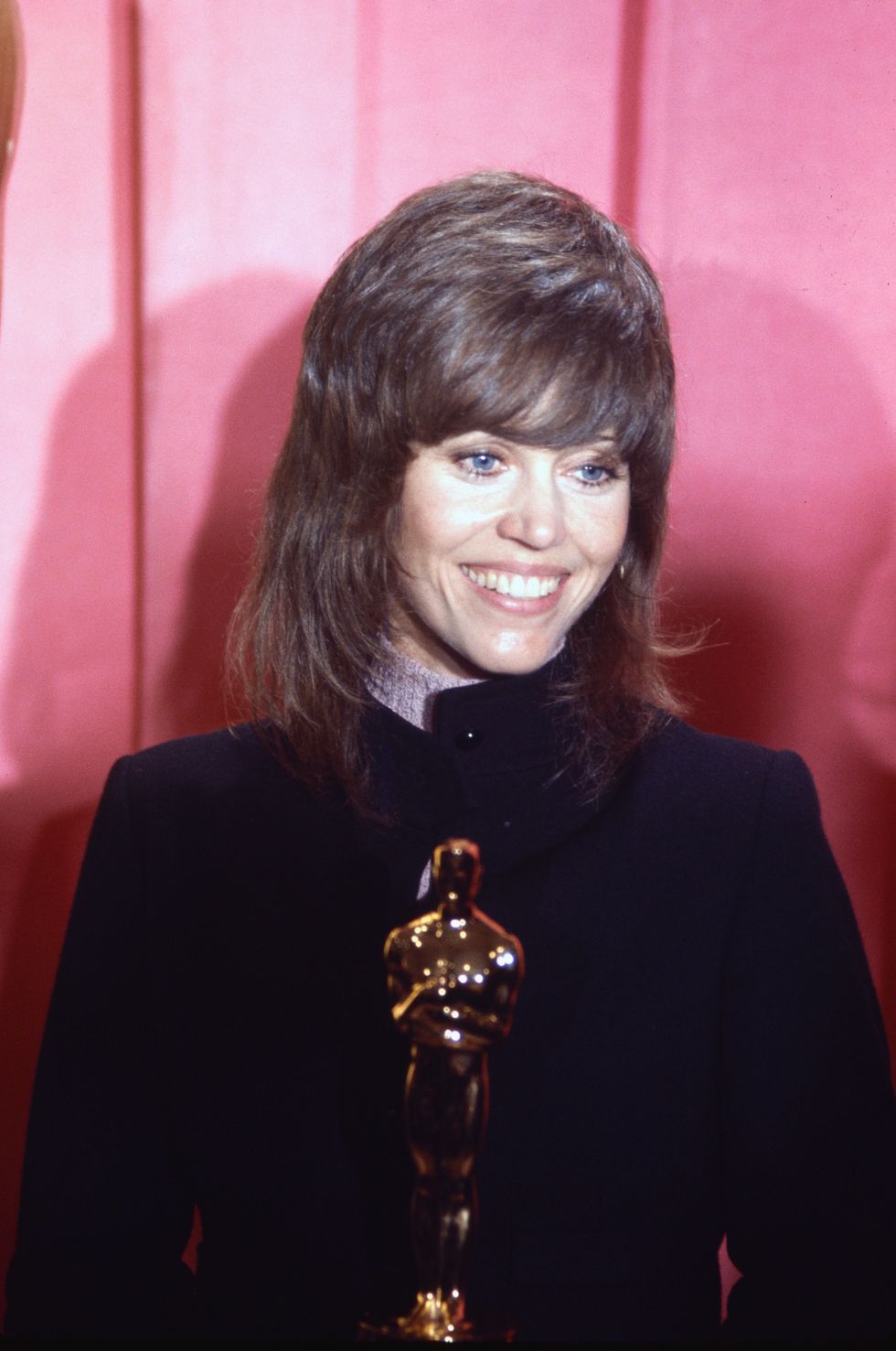
Jane Fonda, 1972: In the months leading up to the 1972 Oscars, Jane Fonda became as famous for her anti-war stance as for her acting career. While fans expected her to go off during the ceremony, she opted instead to keep her Best Actress acceptance speech short and sweet, saying, "There's a great deal to say and I'm not going to say it tonight. I would just like to really thank you very much."
But backstage was a different story. "I was thinking that, while we’re all sitting there giving out awards, which are very important awards, there are murders being committed in our name in Indochina,” she told the press. “And I think everyone out there is aware of it as I am, and I think that everyone out there wants it to end as much as I do. And I didn’t think I needed to say it. I think we have had it. I really do. I think everyone feels that way. And I just didn’t think it needed to be said." (Photo via Bettmann/Getty Images)
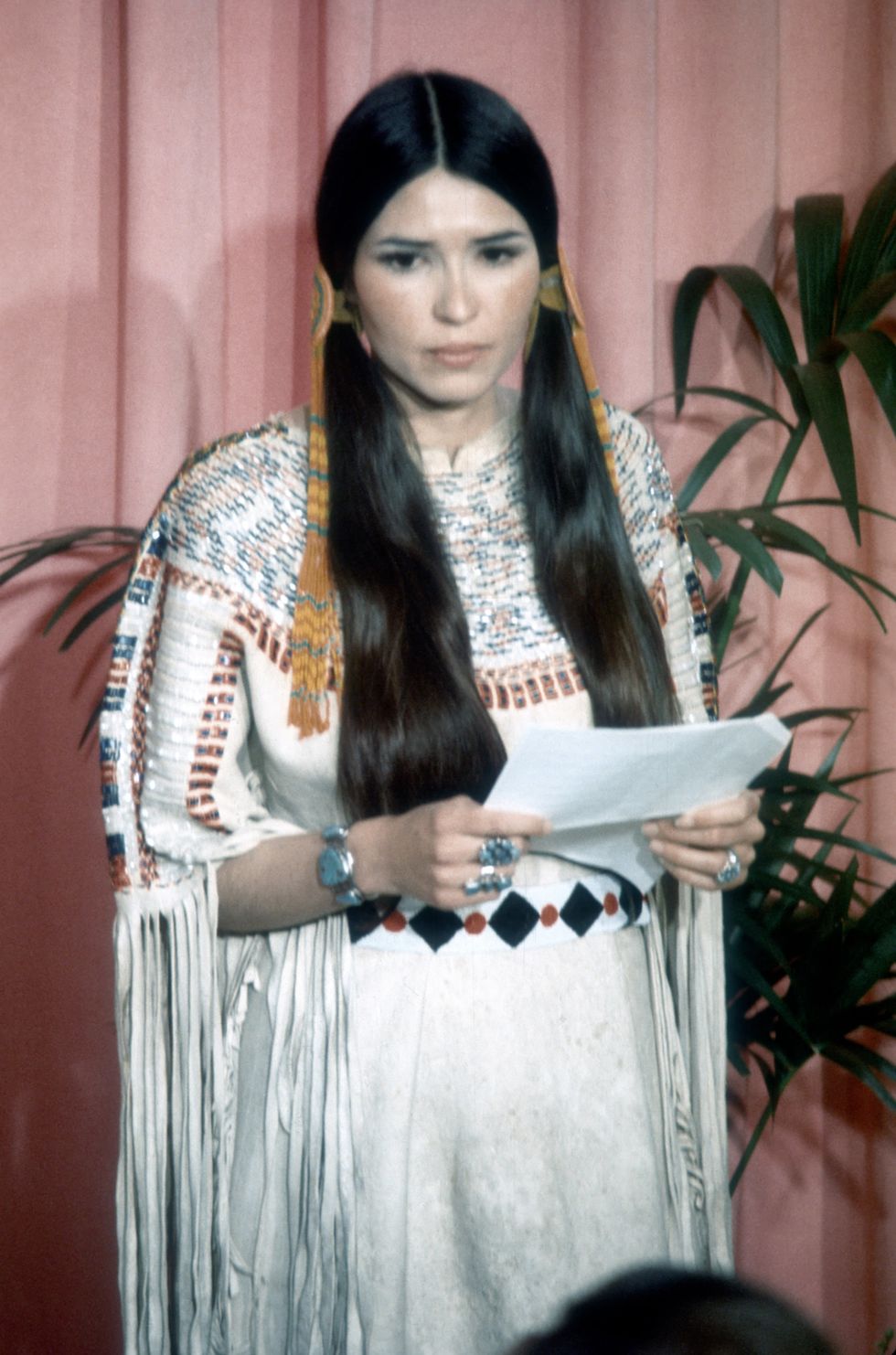
Marlon Brando and Sacheen Littlefeather, 1973: At what might have been arguably the height of his career, actor Marlon Brando not only didn’t attend the 1973 awards ceremony, but he sent a proxy to reject his award for Best Actor. When Brando’s name was called for his iconic role as Vito Corleone in The Godfather, Indigenous activist Sacheen Littlefeather — wearing traditional Apache clothing — took to the podium instead.
"He has asked me to tell you … that he very regretfully cannot accept this very generous award," Littlefeather said. "And the reasons for this being are the treatment of American Indians today by the film industry."
History has come to regard this moment more or less favorably, at least in terms of Brando’s career and legacy. But the stunt was controversial at the time, and Littlefeather was treated less than kindly afterwards. The then-27-year-old aspiring actress received threats, and her own career was effectively ruined.
But Brando’s plan did help break a media silence on the ongoing police standoff at Wounded Knee, South Dakota, something Littlefinger credits the actor for. "Marlon Brando utilized the Academy Award platform … it broke the media boycott," Littlefeather said. "And all the world’s media came to Wounded Knee. So the FBI was madder than hell at me." (Photo by Michael Ochs Archvies/Getty Images)
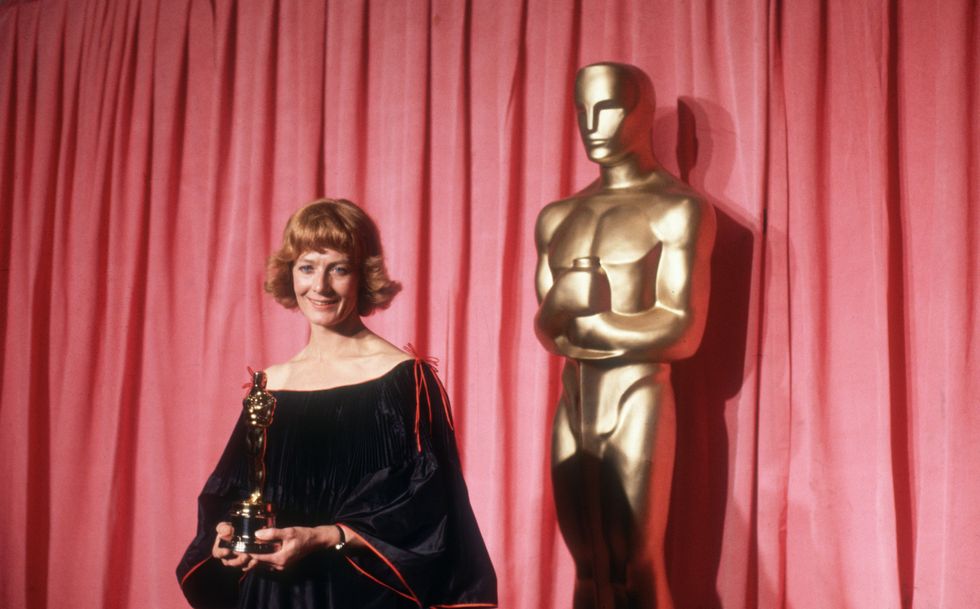
Vanessa Redgrave, 1978: Before receiving her 1978 Oscar nomination for Best Supporting Actress, Vanessa Redgrave had the far-right Jewish Defense League up in arms over her involvement in a pro-Palestine TV documentary, The Palestinian. When she won the statuette for her portrayal of an anti-Nazi activist in the film Julia, Redgrave doubled down on her position. Besides lambasting the JDL, the actress also condemned then-president Richard Nixon and Senator Joseph McCarthy, drawing boos from the assembled Hollywood crowd.
Redgrave has remained unapologetic, however, telling The Hollywood Reporter in 2018, "Everybody had to do their bit, to try and change things for the better. To advocate for what's right and not be dismayed if immediately you don't see results." (Photo via Frank Edwards/Fotos International/Getty Images)
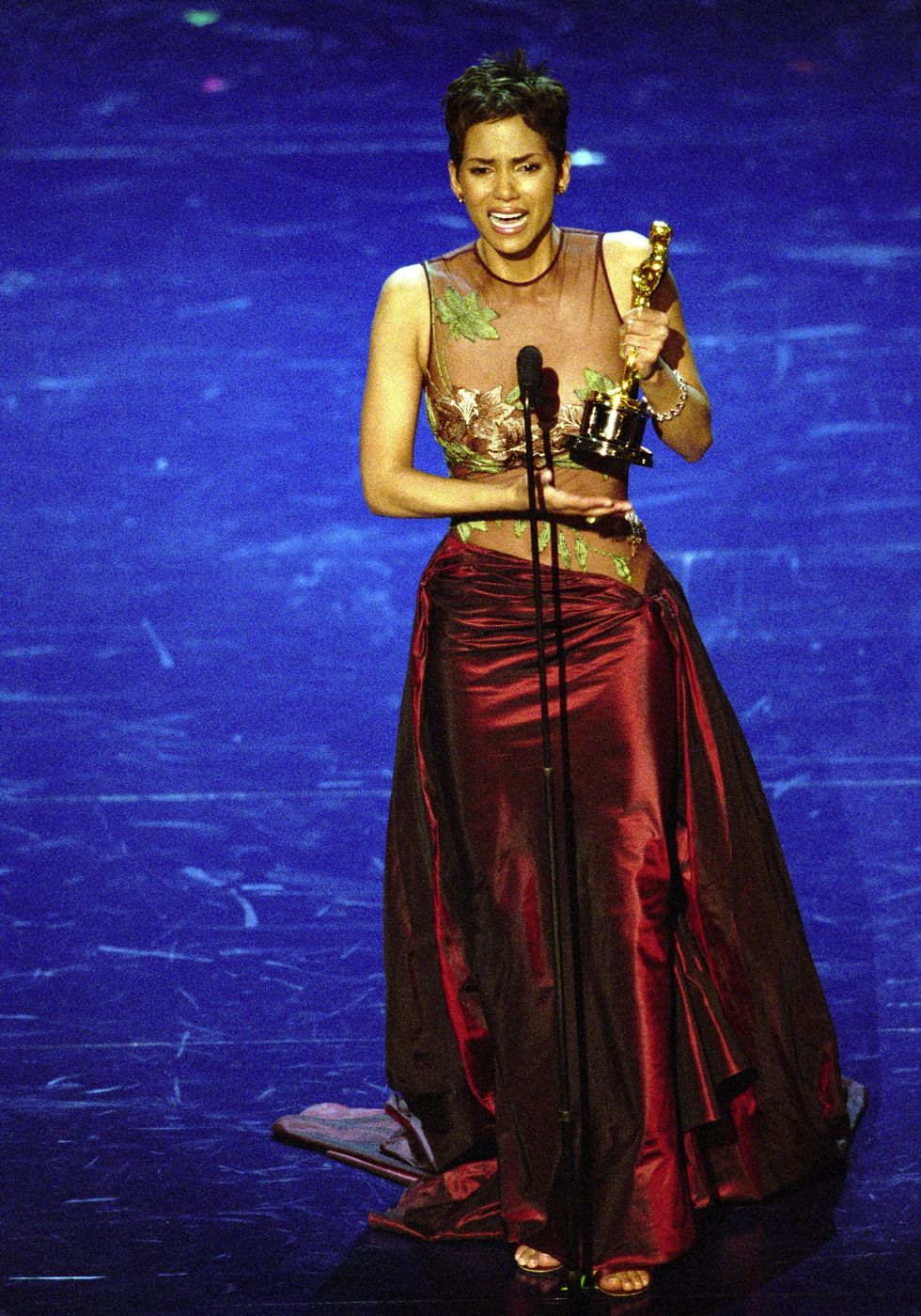
Halle Berry, 2002: When she won the Best Leading Actress award for Monster’s Ball in 2002, Halle Berry became the first Black woman to ever take home the statuette in that category. She used her moment to acknowledge the struggle that Black actresses faced in the past, while recognizing the challenges many still face.
"This moment is so much bigger than me," she explained at the podium. "This moment is for Dorothy Dandridge, Lena Horne, Diahann Carroll. It's for the women that stand beside me: Jada Pinkett, Angela Bassett, Vivica Fox. And it's for every nameless faceless woman of color that now has a chance because this door tonight has been opened."
But since her win, the star has said the award was "meaningless," stating in 2017 that Hollywood’s stance on actresses of color remained stagnant after her win. (Photo by Ken Hively/Los Angeles Times via Getty Images)
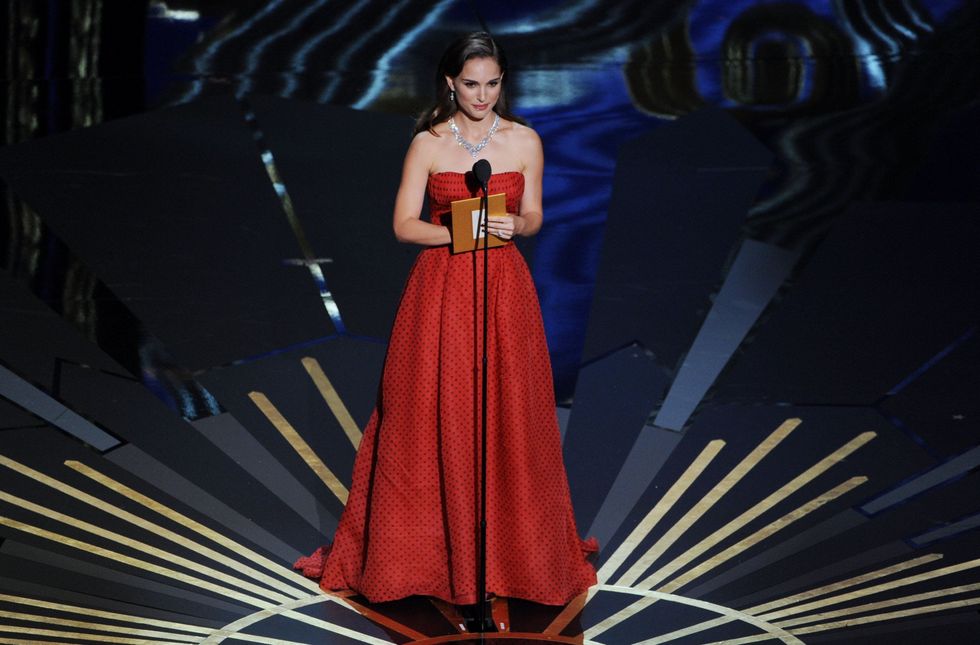
Natalie Portman, 2012: Although the label is increasingly considered out-of-date today, many people still describe immigrants living in the US without visa status as "illegal immigrants" or "illegal aliens." And while the term "undocumented immigrant" is more widely accepted today, Natalie Portman’s speech at the 2012 Academy Awards was one of the first times it was used at such a high-profile event.
During her moment to announce the best acting category, Portman described a character portrayed by nominee Demián Bichir in A Better Life as undocumented instead of illegal, and told the actor, "you gave a voice to the voiceless." (Photo via Kevin Winter/Getty Images)
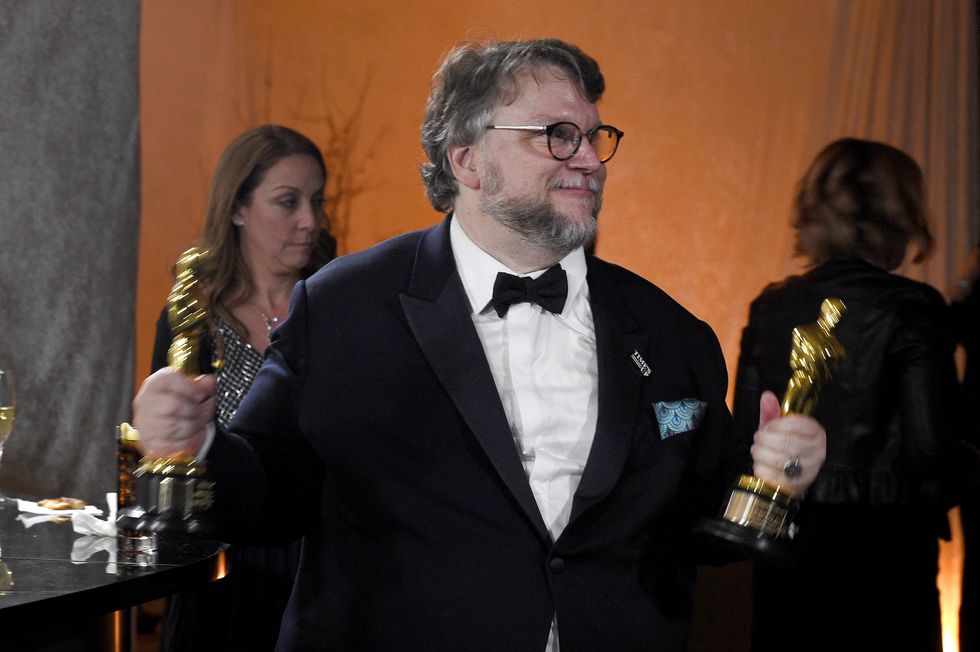
Guillermo Del Toro, 2018: During his Best Director acceptance speech for The Shape of Water, Mexican director Guillermo Del Toro reminded Hollywood — and America — how immigration contributes to the art that we all enjoy.
"I am an immigrant," he said. "In the last 25 years I’ve been living in a country all of our own. Part of it is here, part of it in Europe, part if it everywhere. Because I think that the greatest thing that our art does and our industry does it to erase the lines in the sand, we should continue doing that when the world tells us to make them deeper." (Photo by Kevork Djansezian/Getty Images)
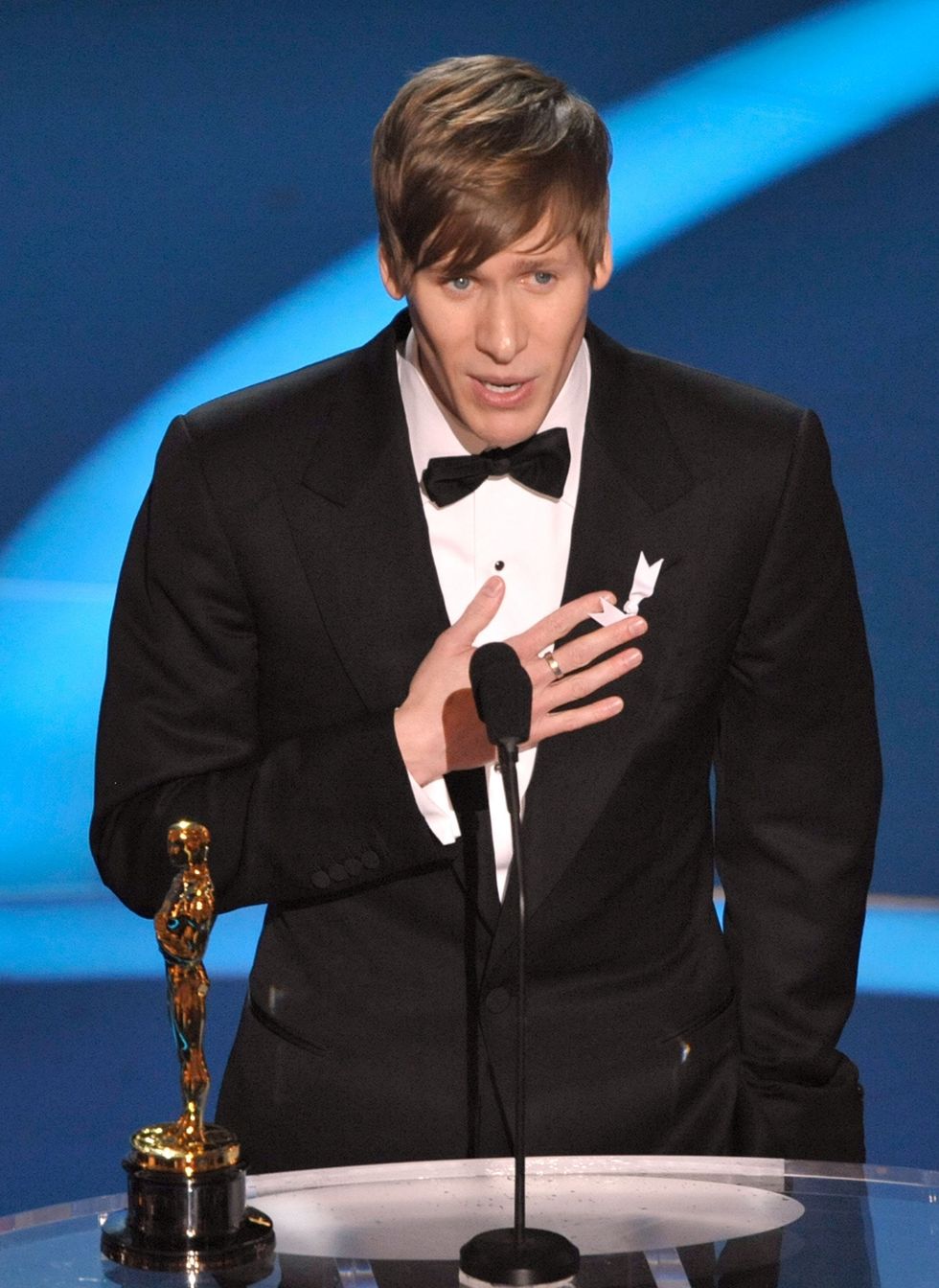
Dustin Lance Black, 2009: When Dustin Lance Black was awarded the Best Screenplay statuette for his film Milk, the screenwriter thanked the film’s subject, politician Harvey Milk, for representing all that a gay man could be, proving how important representation is.
"When I was 13 years old, my beautiful mother and my father moved me from a conservative Mormon home in San Antonio, Texas, to California, and I heard the story of Harvey Milk," he explained. "And it gave me hope. It gave me the hope to live my life, it gave me the hope to one day live my life openly as who I am and that maybe even I could fall in love and one day get married."
He continued: "If Harvey had not been taken from us 30 years ago, I think he'd want me to say to all of the gay and lesbian kids out there tonight who have been told that they are less than by their churches or by the government or by their families, that you are beautiful, wonderful creatures of value and that no matter what anyone tells you, God does love you and that very soon, I promise you, you will have equal rights, federally, across this great nation of ours." (Photo via Kevin Winter/ Getty Images)
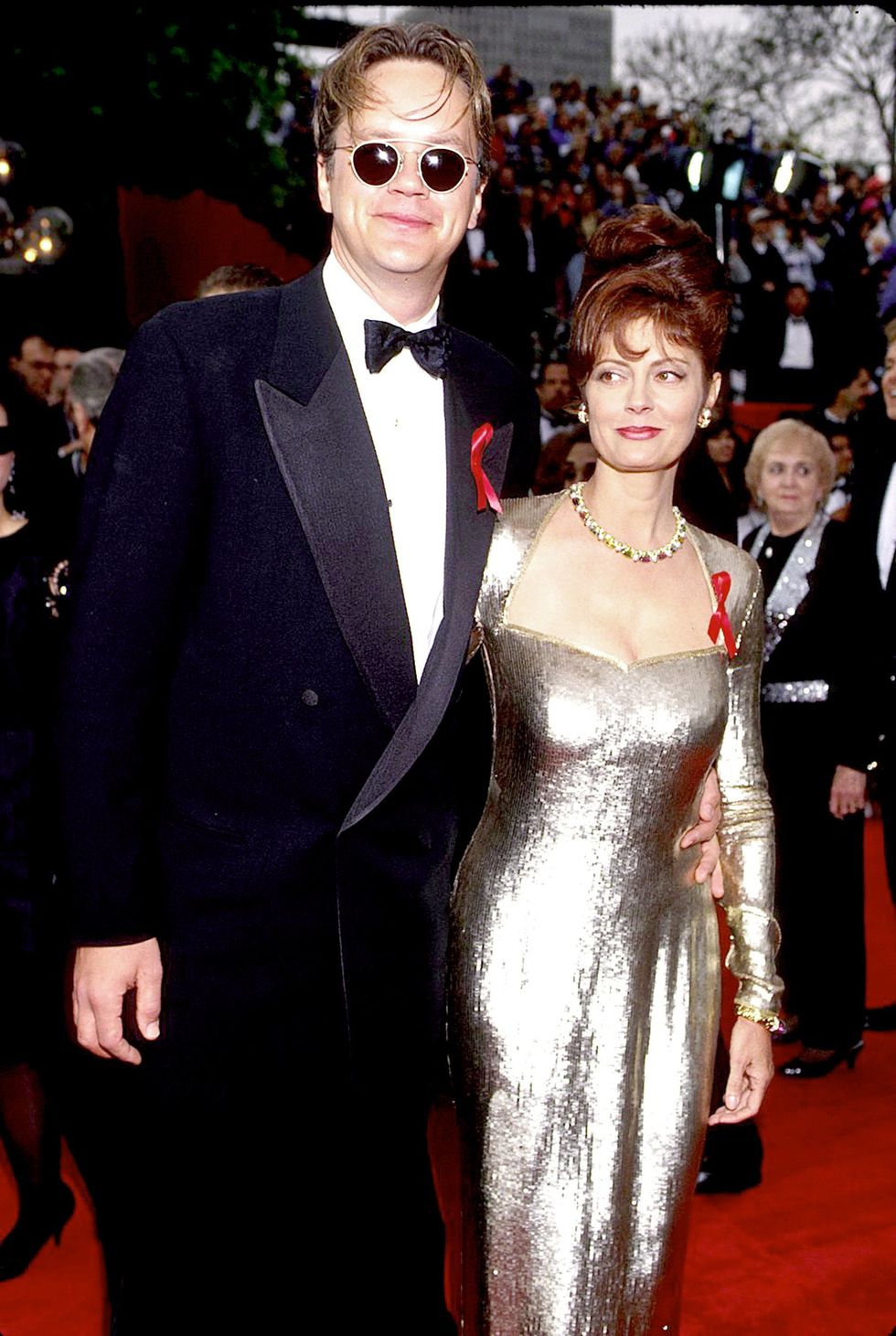
Susan Sarandon and Tim Robbins, 1993: Although many stars were seen donning red ribbons in support of HIV/AIDS during the 1993 Academy Awards, outspoken then-couple Susan Sarandon and Tim Robbins went a step further. The duo made note of more than 150 HIV-positive Haitian refugees who were being held in an "HIV prison camp" at Guantanamo Bay and barred from entry into the US as asylum seekers.
"HIV is not a crime," Sarandon said, and implored of the newly-inaugurated Clinton administration to make good on the president’s 1992 campaign promise to "admit these people into the United States." (Photo via KMazur/WireImage/Getty Images)
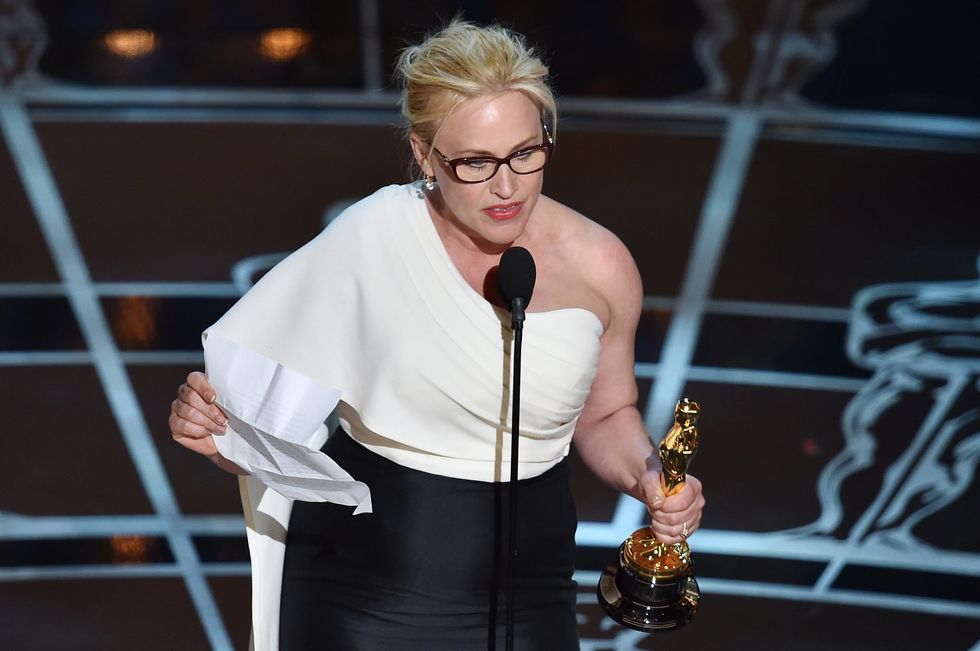
Patricia Arquette, 2015: During her acceptance speech for Best Supporting Actress for the movie Boyhood, Patricia Arquette made the controversial decision to push gender equality to the fore, pointing out how the gender wage gap continues to hurt girls and women.
"To every woman who gave birth to every taxpayer and citizen of this nation, we have fought for everybody else’s equal rights," Arquette said in her speech. "It’s our time to have wage equality once and for all and equal rights for women in the United States of America." (Photo via Kevin Winter/Getty Images)
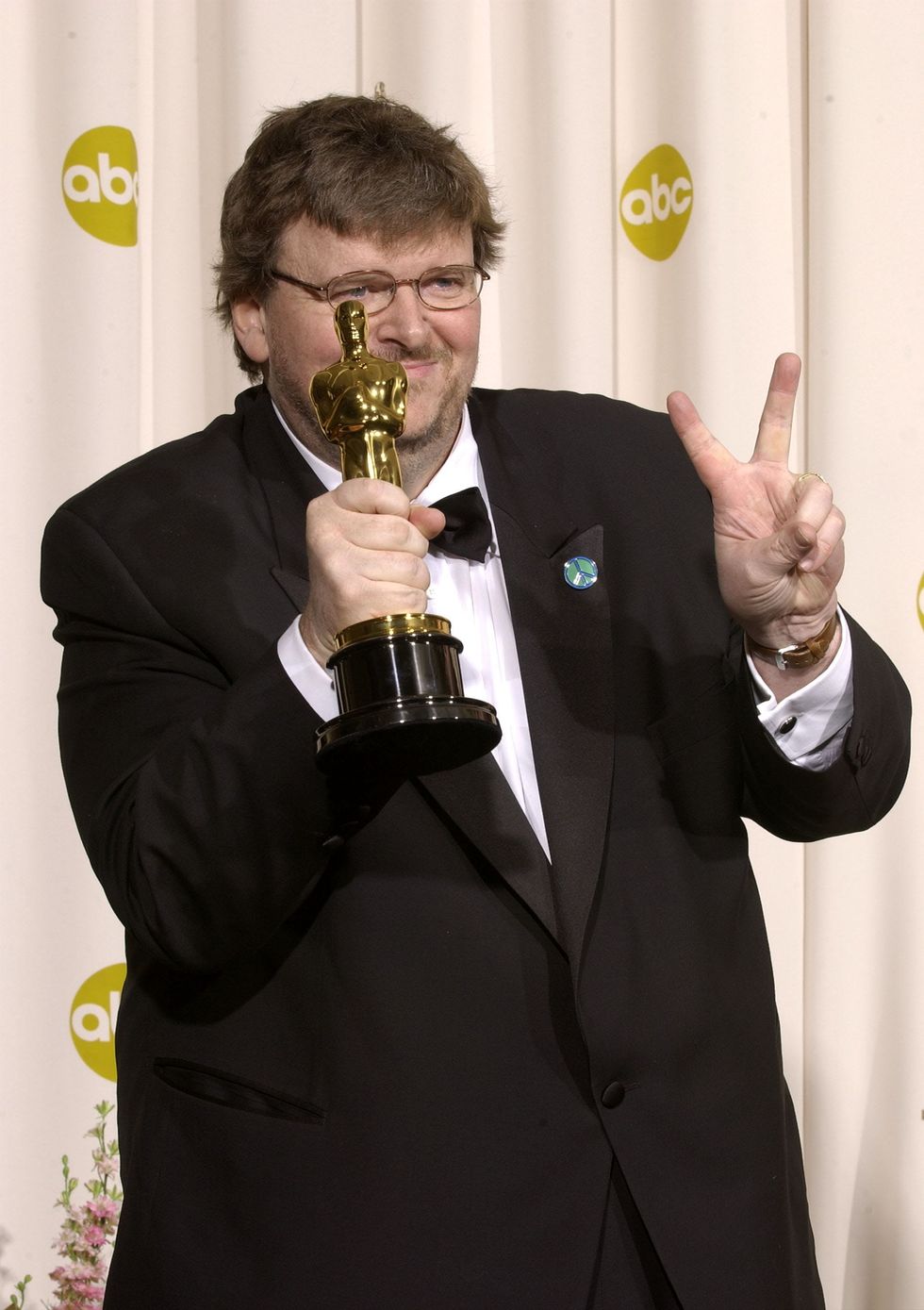
Michael Moore, 2003: After winning the Best Documentary Feature prize for his scathing look at American gun culture, Bowling For Columbine, filmmaker Michael Moore called out then-President George W. Bush for his decision to enter into war with Iraq.
"We live in the time where we have fictitious election results that elects a fictitious president," the director said, to boos. "We live in a time where we have a man sending us to war for fictitious reasons. Whether it’s the fiction of duct tape or the fiction of orange alerts, we are against this war, Mr. Bush. Shame on you, Mr. Bush." (Photo via Robert Mora/Getty Images)
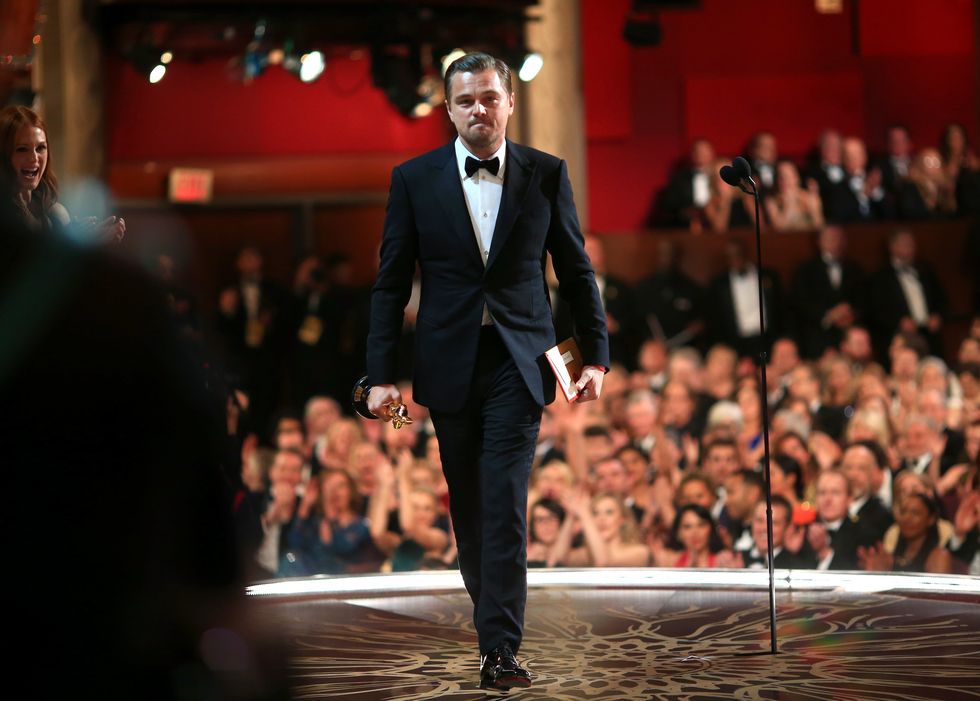
Leonardo DiCaprio, 2016: Leonardo DiCaprio finally won an Oscar in 2016 for The Revenant, and surprised everyone by taking his acceptance speech moment to talk about climate change.
"Making The Revenant was about man's relationship to the natural world. A world that we collectively felt in 2015 as the hottest year in recorded history. Our production needed to move to the southern tip of this planet just to be able to find snow," he said.
"Climate change is real, it is happening right now. It is the most urgent threat facing our entire species, and we need to work collectively together and stop procrastinating. We need to support leaders around the world who do not speak for the big polluters, but who speak for all of humanity, for the indigenous people of the world, for the billions and billions of underprivileged people out there who would be most affected by this. For our children’s children, and for those people out there whose voices have been drowned out by the politics of greed. I thank you all for this amazing award tonight. Let us not take this planet for granted. I do not take tonight for granted. Thank you so very much." (Photo via Christopher Polk/ Getty Images)
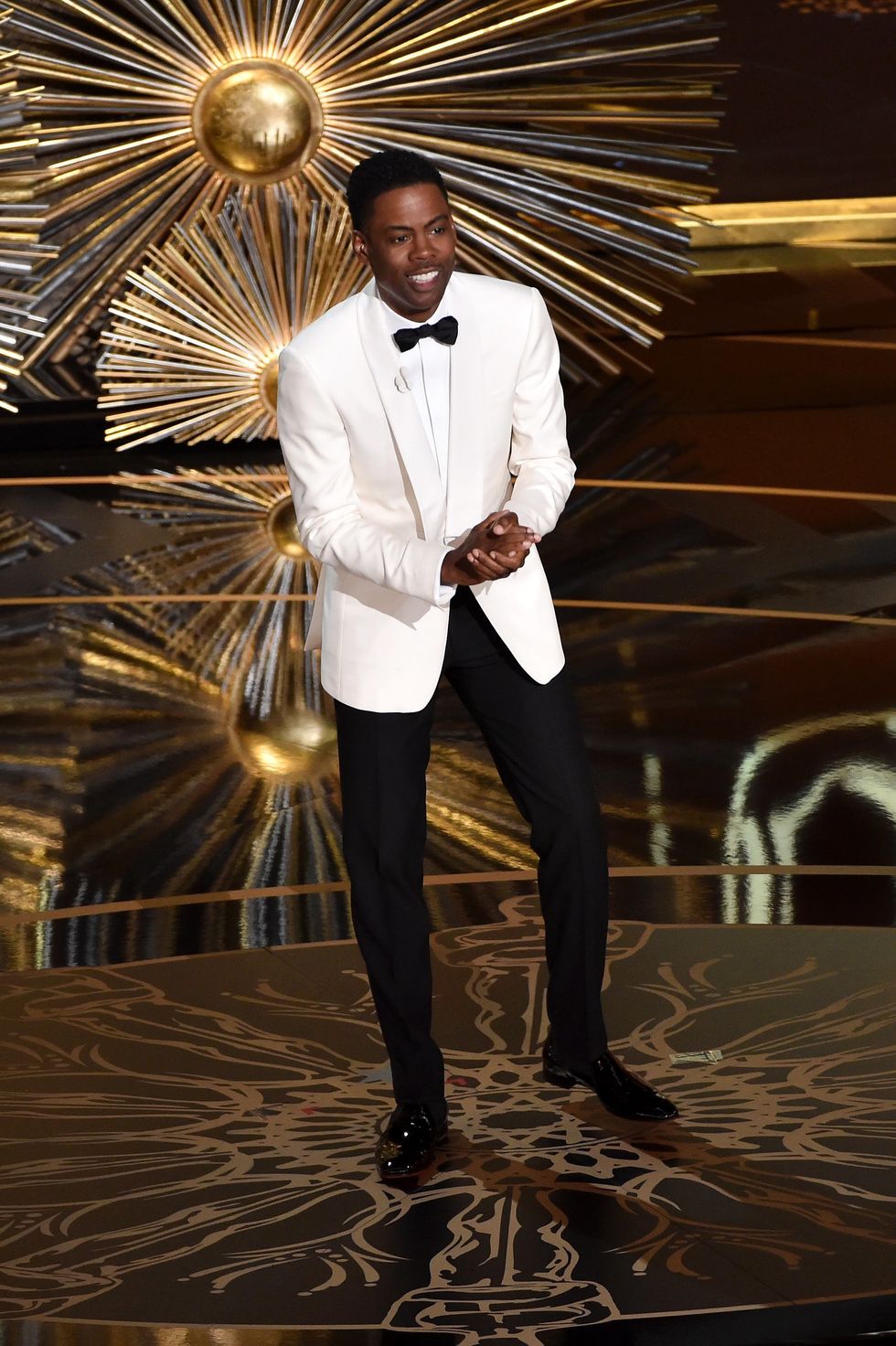
#OscarsSoWhite, 2016: When the Academy of Motion Picture Arts and Sciences failed to nominate any Black actors for the second awards season in a row, the 2016 Academy Awards faced huge backlash with an activist campaign dubbed #OscarsSoWhite.
The hashtag worked. Stars including Jada Pinkett Smith refused to attend the awards ceremony, and host Chris Rock even joked in his opening monologue that the Academy Awards were "the White People’s Choice Awards." Since then, the Academy has gotten more diverse, and the 2019 awards are already the most inclusive in recent memory. (Photo by Kevin Winter/ Getty Images)


















